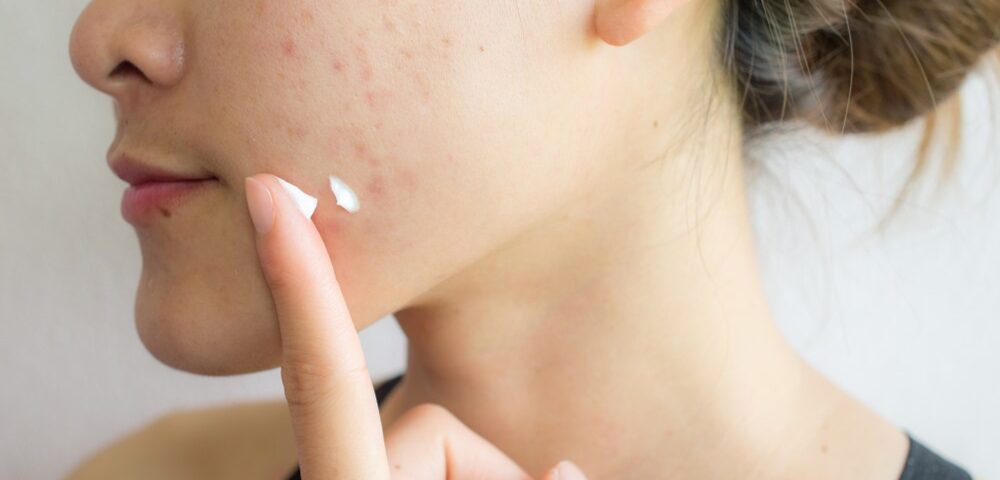
Neem; an effective remedy for skin disorders
August 23, 2023Reviewed by Dr. Marium
Acne is a very common skin disorder especially among teenagers and young adults; though it can be encountered by other age groups and affects all ethnicities. Acne occurs when hair follicles in the skin becomes clogged with sebum which is an oily substance that prevent skin from drying out and when the dead skin cells plug the pores; this leads to outbreak of skin lesions commonly known as pimples.
Moreover, there is an increasing demand for effective skincare products that contain a variety of active ingredients and seek out the problems within our skin barrier to prevent it from occurring in the future.
In this case, salicylic acid has optimum use for treating acne prone skin by reducing any
redness appearing on the skin’s surface and unplugging blocked pores to allow pimples to
shrink significantly. There is also, like any other medicinal product containing chemical
ingredients associated side effects that may arise in a minority. Exploring the benefits and
coinciding risks allow for an individual to be better aware of the effects of salicylic acid as a
skin care product in a growing industry where it is promoted world-wide.
Salicylic acid as a skin care product:
Salicylic acid which is an organic acid (a beta hyroxy acid); it is a metabolite of aspirin which is a common anti-inflammatory drug. Salicylic acid is commonly used within the skincare industry to treat acne-prone skin and help control oily skin from break outs mainly by unclogging pores and acting as an effective exfoliant. Being a BHA allows salicylic acid to be oil-soluble which makes it ideal for
penetrating the skin barrier and working to dissolve the bonds between dead skin cells
allowing for an easy removal from the surface of the skin, it is therefore also able to break
down excess oils and sebum that are released by pores that ultimately cause acne and
associated problems.
Application of salicylic acid:
When using salicylic acid for the first time, you should test the product on your skin to check
for any allergies that may cause more serious impacts in the longer term. If no obvious signs
of side effects are witnessed, you should continue using the product in problem areas you
want to focus on. The medication is strictly for the use on skin only therefore, to avoid
irritation, this product should not come into contact with your eyes, nose, mouth or any
broken skin however if this does happen rinsing the skin with cool water should act as an
effective calming agent.
Side effects associated with the use of salicylic acid
There are related risks with using salicylic acid in the form of medication for acne or in
general with any substance that contains active ingredients that have an effect on the skin
therefore addressing this before continuing to use the product is important. In terms of
salicylic acid this may include redness, burning and irritation upon application. To manage
and ensure there is no severe side effects, begin by applying treatment a few days a week as
salicylic acid can also cause your skin to become more sensitive in front of the sun, so it is
best to use a sun cream which is non-oily. It’s important to note salicylic acid should not be
used if pregnant.
Benefits of implementing salicylic acid into your skincare routine:
Unclogging pores- properties within salicylic acid allow it to dissolve the bonds that hold
dead skin cells together proving to be effective on congested skin.
Exfoliation- salicylic acid is a gentle exfoliant that aids the removal of dead skin cells from
the skins surface, overall improving the appearance of the skin to present a smoother and
clearer complexion.
Improving skin texture- using salicylic acid effectively and on a regular basis can significantly
improve the overall tone and texture of the skin making it look smoother and more radiant.
Treating acne- the properties of salicylic acid allow it to act as an anti-inflammatory agent
and exfoliant which makes it suitable to treat acne and unclog pores by removing dead skin
cells to prevent congestion within the skin barrier that would otherwise promote bacterial
causes to trigger inflammation and infection.
*Fun fact: salicylic acid is actually derived from a white willow bark which is also famously
known as the origin of the medication aspirin. It’s extraction from a natural source confirms
its suitability for the sensitivities of dealing with skin related problems.
References:
https://www.fda.gov/cosmetics/cosmetic-ingredients/beta-hydroxy-acids






